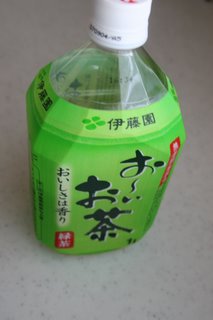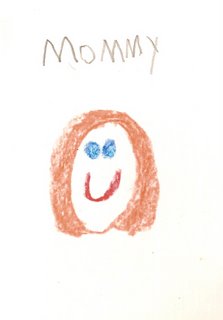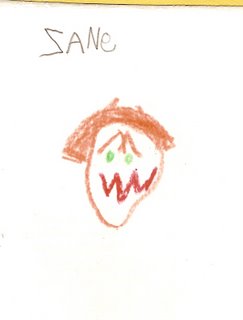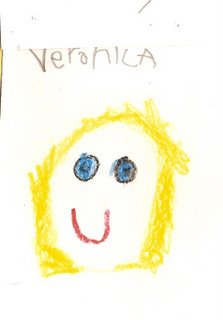Greetings from Japan, where the unlucky number is… 4. Also, 42, but mostly 4.
There are two prevalent ways to pronounce 4 in Japanese. (Numbers and counting are hard in Japanese. A whole topic for a later date, I think.) Four is typically pronounced either ‘Yon’ or ‘Shi’. They’re pretty interchangeable, but certain pronunciations must be used in certain circumstances.
By sad coincidence, ‘Shi’ is also the pronunciation of the kanji symbol for death. So 4 is a harbinger of doom. If you buy a set of dishes or chopsticks there will rarely be a set of 4. Tea sets will have 2 or 5 cups, never 4. If there are parking lots with numbered spaces 1-100, 4 and 42 will be missing. 42 can be pronounced Shi-ni, which is pretty close to “Dead Person”. A western hotel we stayed at in Tokyo had floors 4 and 13 missing, I guess as a nod to the superstitions of their western clientele.
Veronica has the unluckiest birthday in Japan, 4/4. And I wonder about double-dating. Is it bad luck to travel as a party of 4?
***
A copyrighted feature of this blog…
THINGS I’LL MISS ABOUT JAPAN.
 Bottled green tea. Yes, green tea is a thing in Japan. Before it was ever a trend that made it to you grocer’s shelves (maybe a couple of thousand years before), the Japanese have been enjoying it. For all the trend in the US beverage market, they still don’t have the bottled green tea.
Bottled green tea. Yes, green tea is a thing in Japan. Before it was ever a trend that made it to you grocer’s shelves (maybe a couple of thousand years before), the Japanese have been enjoying it. For all the trend in the US beverage market, they still don’t have the bottled green tea.
Simple, unsweetened, calorie free and delicious. It is amazingly refreshing. When it’s hot outside (as octopus balls, for example) nothing tastes better to me. It’s like standing under a waterfall.
It's unlikely this will ever make it to the states. No sugar, no 'extreme' image, made of... leaves. Boring! Get some High Fructose Corn Syrup in there, get some X-Games guys to drink it, and we're in business.
People talk about the weight loss properties of tea, especially green tea. But I think that they have it backwards. If you drink tea, your body is tricked into thinking it’s not starving. That’s why tea is an ancient drink – it made hunger bearable, and back when food supplies were dependent on luck and weather, I bet it came in handy.
So you can lose weight by drinking green tea, but only if you were going to lose weight anyway. Tea just makes it more comfortable. (I should submit that to the ad people at Lipton. Replace “Take the Nestea Plunge” with “It Makes Starvation Bearable.”)
***
Another copyrighted feature of this blog:
JAPANESE IS HARD TO LEARN (so let’s not even try)
Japanese doesn’t put accents on syllables the way we do in English. Theirs is a more musical difference. Formally, each word of two or more syllables either goes up or down, and it seems like most go up. By up and down, I mean that the word starts at ‘do’ on the scale and finishes at ‘fa’ or maybe ‘so’. Or the other way round. (This is all per my Japanese instructor. Honestly in normal speech I can't really hear it. But our Japanese class sounds like we're rehearsing the worst musical ever.)
An example. If you say Ah-meh, going down, it means rain. If you say A-me going up, it means candy. However, if it’s raining candy, you say “subarashii” (magnificent) and turn your umbrella upside down.
Similarly, byoh-een pronounced one way is beauty parlor. The other way is hospital. Both are good places for expert emergency repair, I guess.
***
Some scans of a recent class work by Veronica. Drawings of her family members.
There are two prevalent ways to pronounce 4 in Japanese. (Numbers and counting are hard in Japanese. A whole topic for a later date, I think.) Four is typically pronounced either ‘Yon’ or ‘Shi’. They’re pretty interchangeable, but certain pronunciations must be used in certain circumstances.
By sad coincidence, ‘Shi’ is also the pronunciation of the kanji symbol for death. So 4 is a harbinger of doom. If you buy a set of dishes or chopsticks there will rarely be a set of 4. Tea sets will have 2 or 5 cups, never 4. If there are parking lots with numbered spaces 1-100, 4 and 42 will be missing. 42 can be pronounced Shi-ni, which is pretty close to “Dead Person”. A western hotel we stayed at in Tokyo had floors 4 and 13 missing, I guess as a nod to the superstitions of their western clientele.
Veronica has the unluckiest birthday in Japan, 4/4. And I wonder about double-dating. Is it bad luck to travel as a party of 4?
***
A copyrighted feature of this blog…
THINGS I’LL MISS ABOUT JAPAN.
 Bottled green tea. Yes, green tea is a thing in Japan. Before it was ever a trend that made it to you grocer’s shelves (maybe a couple of thousand years before), the Japanese have been enjoying it. For all the trend in the US beverage market, they still don’t have the bottled green tea.
Bottled green tea. Yes, green tea is a thing in Japan. Before it was ever a trend that made it to you grocer’s shelves (maybe a couple of thousand years before), the Japanese have been enjoying it. For all the trend in the US beverage market, they still don’t have the bottled green tea.Simple, unsweetened, calorie free and delicious. It is amazingly refreshing. When it’s hot outside (as octopus balls, for example) nothing tastes better to me. It’s like standing under a waterfall.
It's unlikely this will ever make it to the states. No sugar, no 'extreme' image, made of... leaves. Boring! Get some High Fructose Corn Syrup in there, get some X-Games guys to drink it, and we're in business.
People talk about the weight loss properties of tea, especially green tea. But I think that they have it backwards. If you drink tea, your body is tricked into thinking it’s not starving. That’s why tea is an ancient drink – it made hunger bearable, and back when food supplies were dependent on luck and weather, I bet it came in handy.
So you can lose weight by drinking green tea, but only if you were going to lose weight anyway. Tea just makes it more comfortable. (I should submit that to the ad people at Lipton. Replace “Take the Nestea Plunge” with “It Makes Starvation Bearable.”)
***
Another copyrighted feature of this blog:
JAPANESE IS HARD TO LEARN (so let’s not even try)
Japanese doesn’t put accents on syllables the way we do in English. Theirs is a more musical difference. Formally, each word of two or more syllables either goes up or down, and it seems like most go up. By up and down, I mean that the word starts at ‘do’ on the scale and finishes at ‘fa’ or maybe ‘so’. Or the other way round. (This is all per my Japanese instructor. Honestly in normal speech I can't really hear it. But our Japanese class sounds like we're rehearsing the worst musical ever.)
An example. If you say Ah-meh, going down, it means rain. If you say A-me going up, it means candy. However, if it’s raining candy, you say “subarashii” (magnificent) and turn your umbrella upside down.
Similarly, byoh-een pronounced one way is beauty parlor. The other way is hospital. Both are good places for expert emergency repair, I guess.
***
Some scans of a recent class work by Veronica. Drawings of her family members.
Veronica

Daddy

Zane.

Hmm. One of these things is not like the others…This is a case study for a family therapist.
I asked her about it. Is Veronica happy or sad? “Happy”. Describe Mommy. “Happy.” Daddy? “Happy.” What about Zane? “Grumpy! Because he’s always grumpy at me.”
She said it with a smile on her face, but it’s true. He is pretty mean to her. More than normal sibling rivalry? Probably not. But I still feel for her. Anything he learns at school or anything he can do well he lords over her.
For the most part, she takes it in stride, and is pretty confident about her skills. She even can be happy for him sometimes, complimenting him on what he does. But a lot of time Zane succeeds in his trying to make her feel bad. Really, he can be a stinker.
This says more about him than about her, that he has to put his sister down in order to feel worthwhile. I guess we’d better start acting like parents and do something. Is this where I pull out the “I’ll give you something to cry about” or the “Don’t make me turn this car around?” Really those are the only parenting phrases I know.
***
Just to prove there is some joy in mudville, here's a video of us being happy.
***
Adversity is the foundation of virtue. Source: Japanese Proverb

No comments:
Post a Comment